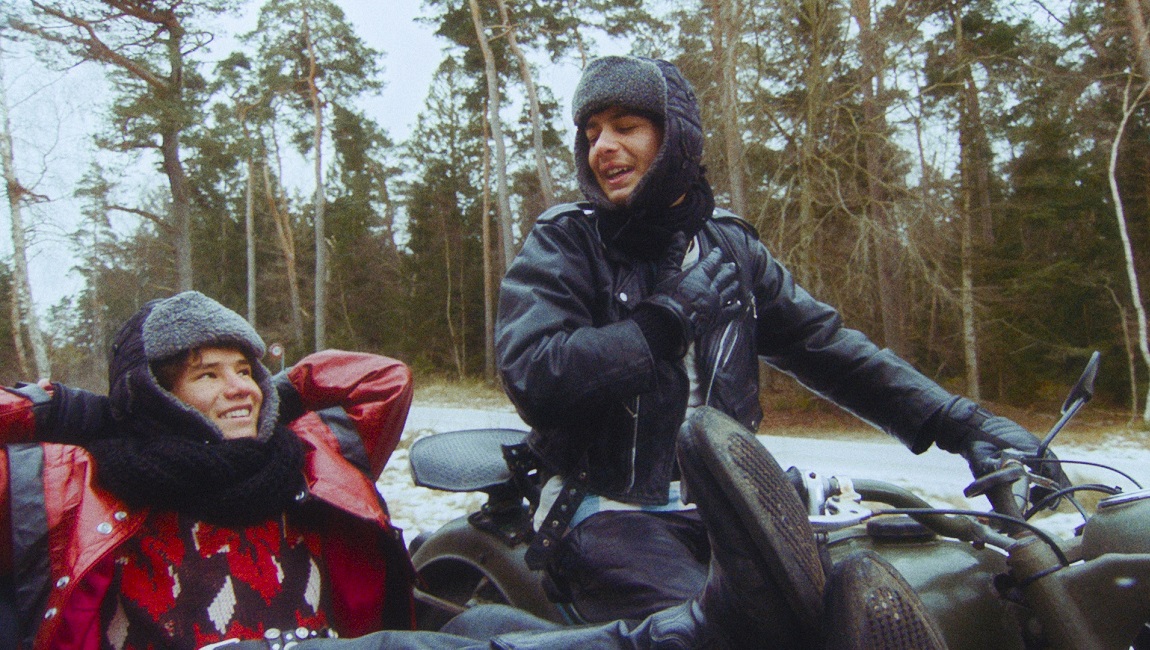Depicting larger-than-life subjects has always posed some representational challenges: inch the individual too perfectly into focus, and one runs the risk of hagiography, but impose too much critical distance, and it casts irrefutable doubt on their life and times at hand. With men and women of certain stature, two questions surface: how best to represent who they are and what they stand for, and where to start? Among our contemporary global polity, game-changing figures from government, business, tech, and the arts frequently inspire and perpetuate discourse; our attention, then, is most commonly bestowed upon these figures, whether vis-à-vis grander socio-political narratives or in and of themselves. One such figure we may sometimes overlook — but whose influence, or that of the institution he stands for, is arguably the longest-lasting and thus unparalleled — is the Pope. Jorge Mario Bergoglio, adopting the papal name Francis, is notable in several ways. He is the first Jesuit to hold this position, the first from the Americas (and the Southern Hemisphere), and the first to take his name from Francis of Assisi, the medieval Catholic friar and one of Italy’s patron saints. Pope Francis has also been distinguished by his comparatively progressive leanings, from his critiques of income inequality and climate change to his support for human and LGBTQ rights.
All these attributes are given relatively short shrift in Gianfranco Rosi’s latest documentary, a quiet and observational portrait of the man almost exclusively culled from archival footage. In Viaggio, translated as “On Voyage,” is less an infographic of the Pope’s various stances on public policy than it is a work that seeks to document the subtle constructions and consequences of his persona. Running a lean 82 minutes, the film follows Francis on his many visits around the world, through continents stricken with natural disasters and man-made terrors, and through communities in social and spiritual crisis. Shots of the Pope on his compact white Popemobile — speeding past throngs of devotees — are interspersed with excerpts from his addresses to countries and clergymen alike: calling for solidarity amidst troubled times, Francis appears cognizant of the symbolic import his office holds, seeking to uphold a unifying presence both against deeply fractious issues and the consequent threat of Catholicism’s diminishing relevance.
There’s a bracing honesty to In Viaggio, not quite derived from ironic distance or critical contrast, but inherent to Rosi’s stylistic choices. The typical position of the documentarian is that of exposition, of uncovering hidden truth; Rosi, consistent with his noteworthy past portraiture (Sacro GRA, Fire at Sea, etc.), reframes honesty as that which discloses starting from the surface. No hidden cameras are revealed, no alternate and possibly conspiratorial accounts are engendered in the montage of Pope Francis as religious synecdoche, and whatever truth In Viaggio holds is left to the viewer’s discretion. Offering an excellent counterpoint to Wim Wenders’ 2018 documentary, Pope Francis: A Man of His Word, Rosi observes a more respectful and reserved position in contrast to Wenders’ almost reverential treatment of the Pope’s reformist character. Whether In Viaggio ultimately engenders hope or skepticism is, of course, hugely premised on one’s initial disposition to religion and ideology alike, and its perhaps unavoidable flaw comes in the Herculean ambitions of biography. To make a film about a singular individual whose pronouncements yield worldwide reverberations is challenging; to render it definite, delusional. But In Viaggio is instead rather modest — a modesty that may seem naïve to some, or be praiseworthy for others — and graceful, acknowledging Francis’ significant, benevolent presence without slipping into valorization. “I do not use doublespeak, it is always the same,” the Pope states in defense of his speech and sincerity without much delusion; In Viaggio is, indeed, better off with its honest, unobtrusive perspective.
Published as part of InRO Weekly — Volume 1, Issue 13.







